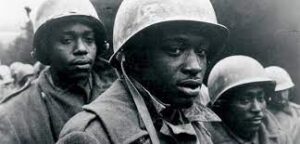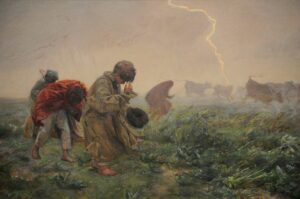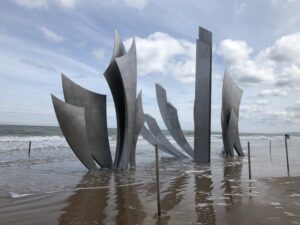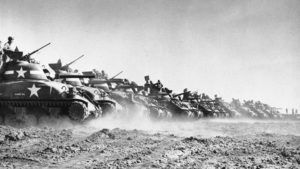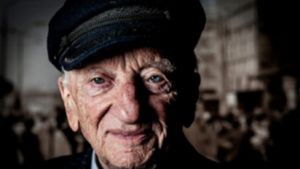D-Day
Sacrifice. 🕊
May 31, 2021Memorial Day 2021
‘Lasting peace requires its active and systematized cultivation at every level of government and society.’
-Marianne Williamson
Thinking today of the Black Americans who returned from WW’s I and II only to be met with deeper segregation, violence and lynchings. -dayle
EJI
[EQUAL JUSTICE INITIATIVE]
Targeting Black Veterans
Lynching in America
Inspired to defend their country and pursue greater opportunity, African Americans have served in the U.S. military for generations. But instead of being treated as equal members of society upon their return from military service, thousands of Black veterans were accosted, attacked, or lynched between the end of the Civil War and the post-World War II era.
During the late 19th and early 20th centuries, white supremacy remained law and custom throughout the nation, and many whites feared that Black soldiers who had experienced the pride of military service would resist the disenfranchisement, segregation, and second-class citizenship that still characterized the African American experience. In August 1917, U.S. Senator James Vardaman of Mississippi warned that, once a Black soldier was allowed to see himself as an American hero, it would be “but a short step to the conclusion that his political rights must be respected.” Bringing Black soldiers home to the South with expectations of equality, he predicted, would “inevitably lead to disaster.”
~
From professor and author Timothy Snyder:
“This one, from Polish, is about trauma, so I thought it might be fitting for May 31st, which in the United States is Memorial Day.”
‘After the Storm’ by Maria Konopnicka, from 1902.
[“The titular storm is never actually described. It is between the stanzas, in the past.”]
Oh lord, who grants to his world the rainbow
Who lifts to bent flowers a cup from below
Who unfolds the wings of the chick in the nest
Who purples the clouds that escape to the west
By morning the village is free from all care
Here an apple tree’s tended, a roof repaired there
And ere the young dawn can cast its first light
The good country folk have forgotten their fright
Oh lord, who every last trace of discord
Erases from earth by a merciful word
And stills forest’s fierce cry and ocean’s low moan
In the all-quiet heavens where you have your throne
Yet to the wrecked human heart, shattered by storm
Instead of the peace of the spectrum’s calm glow
You give endless thunder without sound or form
Echoes of storms past, memory’s woe.
Konopnicka is out of fashion now, even in Poland. The painting by Józef Chełmoński, of the same era (1896), reminds us of the sensibility.
“There is something sharp here: the confession in the last stanza. Her brave point is that a conceit of art, that nature expresses the soul, that outer appearances reveal inner experiences, is false. A storm means one thing in nature, and another inside a person.
So this is a poem about trauma that acknowledges God, but as something other than consolation. God and nature are on one side, and the person is on the other. The poem is not hopeless, though: by placing her predicament beyond God and nature, Konopnicka is taking responsibility for defining it herself. She does so, I think, rather beautifully.”
[Posted on Twitter by Jonathan Reiner: “Omaha Beach Saint-Laurent-sur-Mer, France.”]
D-Day 75
June 6, 201975 years ago today, the Greatest Generation proved what they were made of. The invasion of Normandy was literally and figuratively the line in the sand past which the Nazis would not be allowed to go.
160,000 Allied soldiers participated in the D-Day Invasion. It is estimated that 4,413 of them died. One can only imagine the energy, the courage, the fear, and the prayers that were uttered on that night, this night, in l944.
Several years ago I visited the beaches at Normandy, where barges still rest in the water along the coastline. It was one of the most moving, haunting experiences of my life and I will never forget it. On this day, may we all remember.
Once the invasion had begun, Roosevelt led his nation in prayer. There is no doubt that he meant every word from the bottom of his heart.
In honor of those who came before us, let us in our time rise up and do what is ours to do. May those who lost their lives that day, and those who fought with them, be forever blessed.
The Atlantic
David Frum
The French military defeat in 1940 had torn apart social wounds dating back decades and longer. Conservative and Catholic France reinterpreted the battles of 1940 as a debacle only of the liberal and secular France that had held the upper hand since the founding of the Third Republic in 1871 and especially since the Dreyfus affair that began in 1894. When the reactionary French writer Charles Maurras was sentenced to life imprisonment for collaboration, he supposedly replied, “It’s the revenge of Dreyfus.”
[…]
The French military defeat in 1940 had torn apart social wounds dating back decades and longer. Conservative and Catholic France reinterpreted the battles of 1940 as a debacle only of the liberal and secular France that had held the upper hand since the founding of the Third Republic in 1871 and especially since the Dreyfus affair that began in 1894. When the reactionary French writer Charles Maurras was sentenced to life imprisonment for collaboration, he supposedly replied, “It’s the revenge of Dreyfus.”
[…]
But the human impulses on which the fascists and communists of the 1930s battened? Those do remain with us. They have been a powerful resource to extremists of all kind in our unsettled present moment after the Great Recession of 2008–09 and amid the mass developing-world migration flows of the 2010s. Trump is their most conspicuous beneficiary, but not their only beneficiary. They trouble France; they trouble us.
[…]
This time, no D-Day is called for to defeat them—just a renewed commitment to the ideals for which D-Day was launched 75 years ago by soldiers of so many lands, including the France that has taken so long to make its entire peace with this complicated anniversary.
Full article:
Ben Ferencz
Netflix/Deadline
Amanda N’Duka
‘Prosecuting Evil’ Docu Producers Secure Rights To Story of Nuremberg Prosecutor Ben Ferencz For Scripted Project
Ben Ferencz, a lifelong advocate of “law not war”, became the lead prosecutor in the Einsatzgruppen case at Nuremberg after witnessing Nazi concentration camps shortly after liberation. In his first trial, at age 27, all 22 Nazi officials who were tried for murdering over a million people, were convicted. Ferencz went on to advocate for restitution for Jewish victims of the Holocaust and later assisted in the establishment of the International Criminal Court.
Avrich directed the documentary, which had its world debut at the 2018 Toronto Film Festival and is now available to screen on Netflix.
Avrich’s Melbar Entertainment Group and Theroux’s Sugar Shack Productions will produce the scripted projects.
“This is an extraordinary honor to tell the story; one of the most iconic and historic figures of our time,” said Avrich. “I feel a real responsibility to continue to bring this important story to as many people as we can, this time through a scripted project.”
“I am thrilled to help bring this prestigious, inspiring and historic story to the big screen,” remarked Theroux. “Ben has led an incredible life and it is a privilege that Barry and I have been allowed to share it with the world in a new capacity.”
Benjamin B. Ferencz was born in the Carpathian Mountains of Transylvania in 1920. When he was ten months old his family moved to America. His earliest memories are of his small basement apartment in a Manhattan district – appropriately referred to as “Hell’s Kitchen.” Even at an early age, he felt a deep yearning for universal friendship and worldpeace.e
After he graduated from Harvard Law School in 1943, he joined an anti-aircraft artillery battalion preparing for the invasion of France. As an enlisted man under General Patton, he fought in every campaign in Europe. As Nazi atrocities were uncovered, he was transferred to a newly created War Crimes Branch of the Army to gather evidence of Nazi brutality and apprehend thecriminals.s
“Indelibly seared into my memory are the scenes I witnessed while liberating these centers of death and destruction. Camps like Buchenwald, Mauthausen, and Dachau are vividly imprinted in my mind’s eye. Even today, when I close my eyes, I witness a deadly vision I can never forget-the crematoria aglow with the fire of burning flesh, the mounds of emaciated corpses stacked like cordwood waiting to be burned…. I had peered into Hell.” (From Planethood,1988)8
On the day after Christmas 1945, Ferencz was honorably discharged from the U.S. Army with the rank of Sergeant of Infantry. He returned to New York and prepared to practice law. Shortly thereafter, he was recruited for the Nuremberg war crimes trials. The International Military Tribunal prosecution against German Field Marshal, Herman Goering and other leading Nazis was already in progress under the leadership the American Prosecutor, Robert M. Jackson on leave from the USSupreme Court..
The U.S. had decided to prosecute a broad cross section of Nazi criminals once the trial against Goering and his henchmen was over. General Telford Taylor was assigned as Chief of Counsel for 12 subsequent trials. Ferencz was sent with about fifty researchers to Berlin to scour Nazi offices and archives. In their hands lay overwhelming evidence of Nazi genocide by German doctors, lawyers, judges, generals, industrialists, and others who played leading roles in organizing or perpetrating Nazi brutalities. Without pity or remorse, the SS murder squads killed every Jewish man, woman, and child they could lay their hands on. Gypsies, communist functionaries, and Soviet intellectuals suffered the same fate. It was tabulated that over a million persons were deliberately murdered by these special “action groups.
Ferencz became Chief Prosecutor for the United States in The Einsatzgruppen Case, which the Associated Press called “the biggest murder trial in history.” Twenty-two defendants were charged with murdering over a million people. He was only twenty-seven years old. It was his first case.
All of the defendants were convicted. Thirteen were sentenced to death. The verdict was hailed as a great success for the prosecution. Ferencz’s primary objective had been to establish a legal precedent that would encourage a more humane and secure world in the future.
In 1988 Ferencz wrote PlanetHood with Ken Keyes, Jr., to offer practical steps for the average citizen to take to help establish international law and urge U.N. reform. Receiving critical acclaim from its readers, with over 450,000 copies printed and served as an inexpensive and easy-to-read “Key To Survival and Prosperity.”

